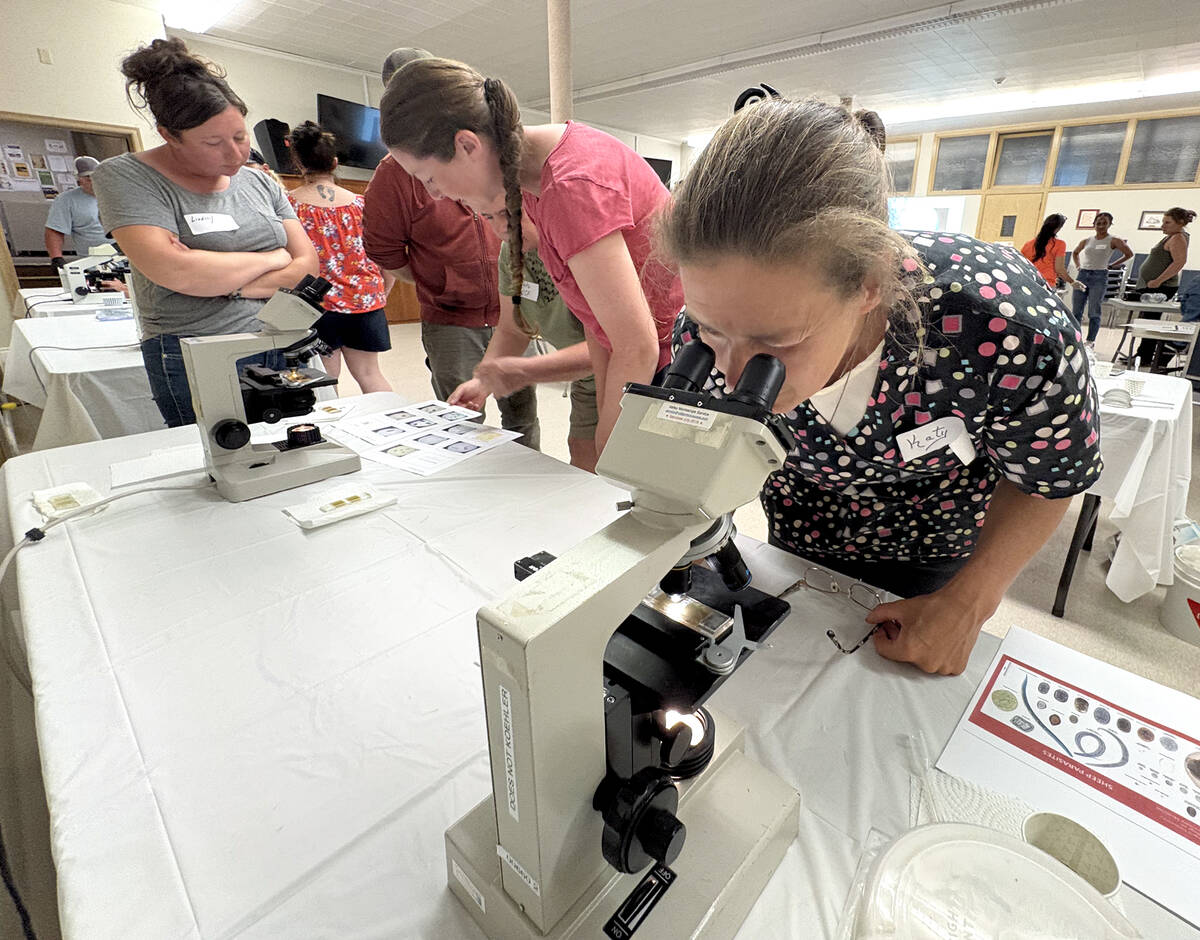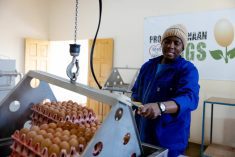When Harold Froese became Manitoba’s representative on the Canadian Egg Marketing Agency’s board of directors, the national egg system seemed about to implode.
Bitter arguments between provinces over quota allocations and industrial egg programs threatened to tear the agency apart.
What a difference a few years make.
Since 2001, there has been “unprecedented peace” in Canada’s egg industry, Froese told the Manitoba Egg Producers annual meeting in Winnipeg March 11.
It’s an example of how supply management can function when participants decide to work together instead of against each other, he said.
Read Also

Smart deworming for sheep starts with individual fecal egg counts
Fecal egg count tests are one step to managing dewormer resistance and managing sheep parasites on Canadian sheep farms to maintain flock health.
Froese announced he is stepping down as a CEMA (now Egg Farmers of Canada) director after 10 consecutive years. He will continue as a
Since 2001, there has been “unprecedented peace” in Canada’s egg industry.
director with MEP, which he has served for 25 years.
Manitoba was at the heart of a national egg war when Froese became a director. The province stood accused of violating the national quota allocation agreement with a special “Eggs For Processing” program for the expanding industrial egg market. Some provinces withheld egg levies to protest Manitoba’s program. CEMA threatened Manitoba with fines and retaliation. All the while, Froese warned the system could not continue to support lower-priced industrial eggs with ever-increasing producer levies.
But an interprovincial agreement in late 2000 to produce processing eggs outside the regular quota system helped overcome the problem.
Today, the system is working as it should, providing stable returns for farmers and good-quality eggs at reasonable prices for consumers, Froese said.
Altogether, 2008 was a good year for Canada’s egg farmers, he reported to the meeting.
The industrial egg fund, once chronically debt ridden, is solidly in the black. It was aided until recently by a robust Canadian dollar, bolstering the fund by $750,000 for every cent the loonie appreciates against the U. S. greenback, he said.
A strong U. S. benchmark price for eggs, which provides the basis for the industrial program, also helped significantly. The higher the benchmark, the less Egg Farmers of Canada needs to subsidize the industrial removal program through levies.
Strong prices enabled EFC to lower levies by four cents during 2008. A further four-cent decrease was approved in December.
National table egg consumption increased four per cent in 2008, exceeding industry expectations of a one per cent growth.
Figures released at the meeting showed the producer price for Grade A Large (AL) set by MEP averaged $1.65 a dozen in 2008, up from $1.55 in 2007. The AL cost of production formula was $1.60 a dozen in 2008 ($1.50 in 2007).
Looking ahead, Froese predicted another positive year for egg producers, notwithstanding the global economic downturn.
Markets are expected to continue steady, especially for specialty eggs (free run, free range, organic).
But producers should guard against animal rights activists and their ongoing campaigns to ban battery cages, Froese warned.
That movement received a boost during the November U. S. elections when California voters passed Proposition 2, an initiative which will effectively ban gestation stalls, battery cages and veal crates in the state by 2015.
Brenda Bazylewski, MEP’s marketing and communications coordinator, described the board’s ongoing campaign to develop good relations by strengthening the emotional connection with the general public.
For the last five years, MEP has conducted a media advertising campaign under the header, “We’re Egg Farmers! We Love What We Do!” The campaign seeks to develop trust and credibility with consumers by portraying egg farmers as responsible caregivers of their hens, whether housed in or out of battery cages, Bazylewski said. [email protected]


















